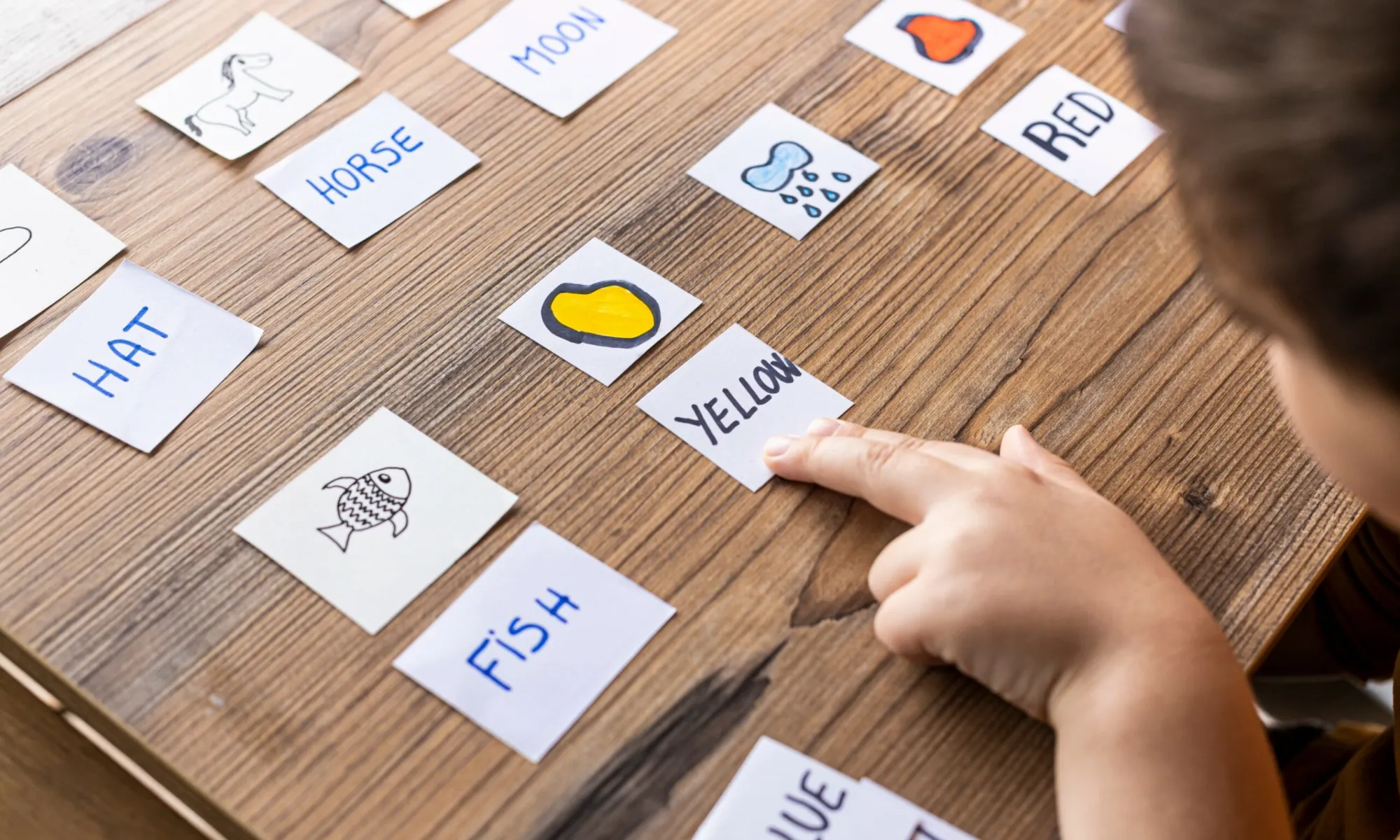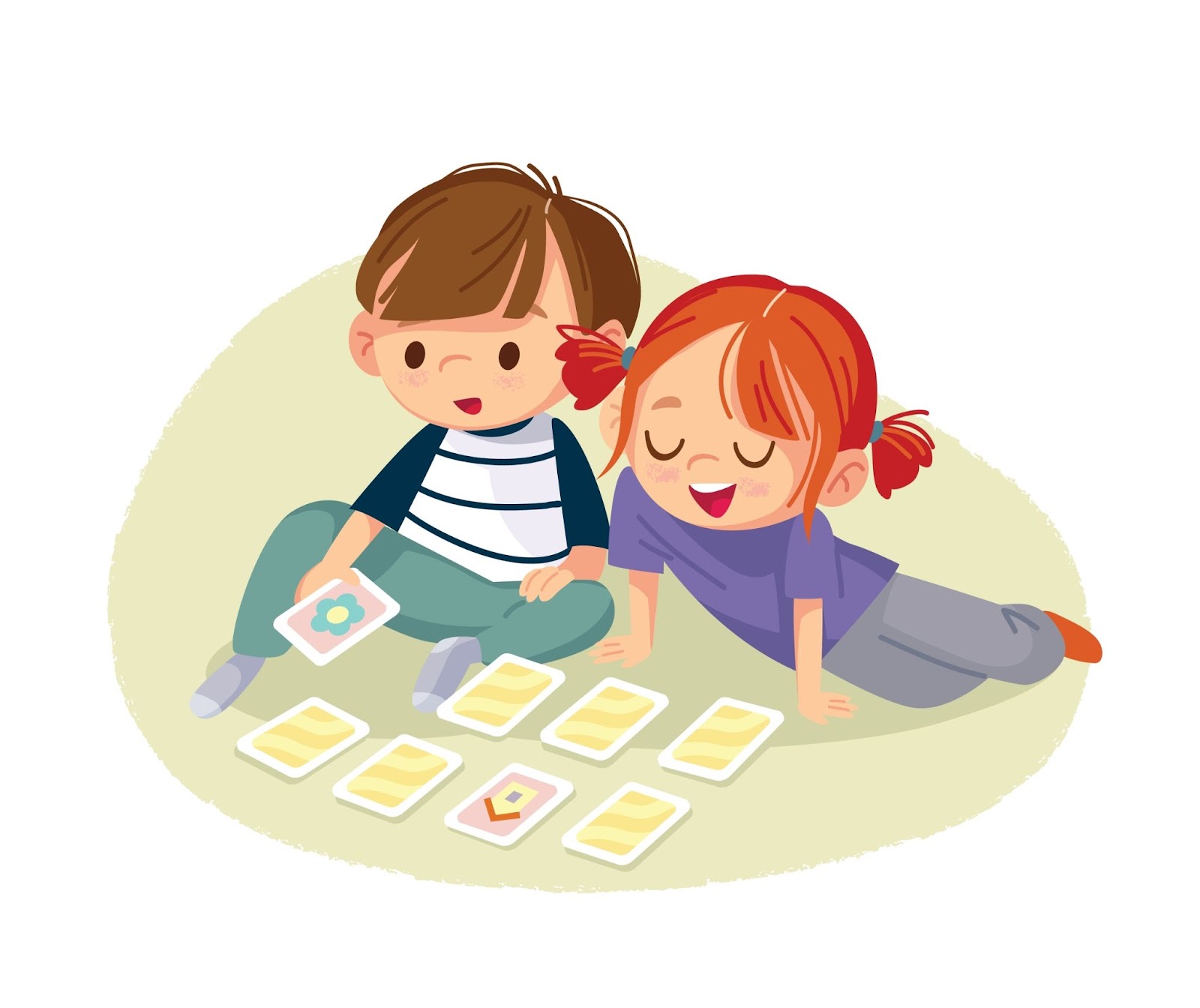In childhood the world seems especially colourful with a variety of different shades. In language learning the topic of colours is usually one of the first to study because it helps us to know more about the world around us.
How to remember English words? 7 tips to memorize English vocabulary
- 7 strategies for remembering new English words
- Teach kids how to remember new English vocabulary
- 7 vocabulary card games for kids
- 5 games for memorizing words in English with objects
- 5 board games to improve English vocabulary
- Effective ways to learn English vocabulary with Novakid
Are you struggling with memorizing English words and looking for effective ways to remember new vocabulary? In this article, we will dive into the fascinating world of vocabulary acquisition and explore effective strategies to help both kids and adults remember English words effortlessly. Whether you’re a language enthusiast or a parent looking to support your child’s language journey, these seven expert tips are sure to make the process enjoyable, fun and effortless!
We all know that mastering a language requires a solid foundation of vocabulary. It is through the knowledge of words that we unlock the ability to speak, read, listen, and write in English. However, the question remains: How can we efficiently commit these words to memory? How to remember vocabulary, when learning a totally new language?
While some people seem to have an innate gift for remembering words effortlessly, for most of us, it takes a conscious effort to expand our lexicon. But fear not! Today, we’ll share invaluable insights and practical techniques that will empower you and your children to enhance your vocabulary retention skills. Learning English words doesn’t have to be a daunting task! Discover that the journey to master vocabulary in a foreign language can be both engaging and rewarding. Let’s embark on this language adventure together and uncover the secrets to mastering English vocabulary! Memorize English vocabulary with Novakid!
7 strategies for remembering new English words
When it comes to expanding your vocabulary, consistency and regular practice are key to success. By utilizing these 7 techniques mentioned below, you’ll enhance your word retention abilities and take significant strides towards becoming a confident English speaker. These tips are suitable for both adults and kids, so no matter if you want to learn new vocabulary, or you want to help your kids, use these top tips to succeed.
- Create Associations: One powerful technique to remember words is to create associations with familiar concepts or images. For example, if you’re learning the word “pensive,” you can associate it with a picture of someone deep in thought, pondering a problem. By linking new words to existing mental images or concepts, you create a memorable connection that aids in recall.
- Use Mnemonics: Mnemonics are memory aids that help you remember information by associating it with a phrase, rhyme, or acronym. For instance, to remember the spelling of “necessary,” you can use the phrase “Never Eat Carrots, Eat Seasoned Spinach And Radishes, Yummy”, ” where the first letter of each word represents the corresponding letter in “necessary.” Mnemonics provide a fun and creative way to remember challenging words.
- Contextualize Words: Understanding the context in which a word is commonly used enhances your ability to remember it. Read or listen to sentences and passages that include the target word, and try using the word in different contexts yourself. For instance, if you encounter the word “eclectic,” observe how it is used in different texts and practice incorporating it into your own sentences.
- Utilize Visual Aids: Visual aids, such as flashcards or word charts, are effective tools for vocabulary retention. Write down the word, its definition, and draw an image on a flashcard. Reviewing these visual cues regularly helps reinforce the connection between the word and its meaning. For example, if you’re learning the word “explore,” your flashcard could feature a picture of someone with a magnifying glass, symbolizing the act of exploration.
- Engage in Contextual Reading: Reading extensively exposes you to a wide range of vocabulary in context. Choose books, articles, or online content that align with your interests and reading level. When you encounter unfamiliar words, use context clues to deduce their meaning. Look up the definitions to solidify your understanding, and make a note of the new words for future review.
- Practice Spaced Repetition: Spaced repetition involves reviewing words at gradually increasing intervals over time. Start by reviewing newly learned words frequently, then gradually space out your practice sessions as you become more familiar with them. Apps and online platforms like Anki or Quizlet can assist you in implementing spaced repetition effectively.
- Use Vocabulary in Daily Life: Actively incorporating new words into your daily life helps cement them in your memory. Practice using the words in conversations, writing exercises, or even in social media posts. The more you engage with the vocabulary, the more likely it is to stick with you. Additionally, try keeping a vocabulary journal where you write down new words, their definitions, and examples of their usage.
Teach kids how to remember new English vocabulary
By the age of 11-12, children’s memory is already developed by regular memorization of words, and it is enough for them to write them down and repeat them at home, but this does not work with younger school children. They need to be taught how to remember words. It’s good when your school teacher understands the need to learn new vocabulary and spends time not on writing words down in a notebook and translating them (which, by the way, can be done at home after the lesson), but on active memorization, with the help of the existing variety of vocabulary games.
In that case, students won’t have any problems with remembering new words. After all, everyone loves to play and games are exciting, plus winning motivates students to continue learning new vocabulary in English.
However, if the learning process is structured differently where students are assigned the task of learning new words as homework, parents may need to invest extra effort to support their child, especially initially. The challenge of memorizing words in school is exacerbated by the expectation to learn both the meaning and spelling simultaneously. This approach places a heavy cognitive load on the brain and memory, making it difficult for students. As a result, it is unsurprising that children may display a lack of enthusiasm towards learning English in such circumstances.
7 vocabulary card games for kids
These 7 interactive and engaging card games transform vocabulary learning into a fun and memorable experience. They promote active participation, reinforce word meanings, and provide opportunities for contextual usage and language practice.
- “Where is…?” Feedback Game: Spread out cards with words in front of the child and ask questions like “Where is…?” ending with the target word. This game allows you to assess their learning progress and identify words that require more practice. It also helps children hear words in context, enabling them to practice using interrogative words such as “Where?” in real-life situations.
- Memory Challenge: Turn over cards with images of the words being learned. Ask questions like “Where is…?” or “Please find me…” and have the child recall both the meaning and location of the corresponding picture. This game enhances memory and attention skills.
- Active Picture Jump: Spread out picture cards on the floor and instruct the child to jump on specific cards as you call them out. This active game adds movement and engagement to the learning process.
- Ball Toss Target Practice: Attach picture cards to a board, wall, or spread them out on the floor. Have the child throw a ball at the word you call out, aiming to hit the correct picture. This game develops attention, memory, and accuracy, and can be played competitively or cooperatively.
- Vocabulary Bowling: Glue pictures and words onto bowling pins or other objects, place them at one end of the room, and give the child a ball. Instruct them to roll the ball and knock down the pins. Count the knocked-down pins and ask the child to name the corresponding words. Consider introducing a scoring system to add excitement and competition.
- “Steam Train” Trailers: Spread out cards with words face down in a line. Have the child open each “trailer” and name the word on the card. Begin each reveal with the question “What is it?” to encourage full answers like “This is…” This game reinforces word recognition and vocabulary recall.
- Classic Memo Matching: Use two sets of cards with images. Mix them and play a matching game, but this time, make sure to name each match in English. This game helps practice vocabulary, including singular and plural forms. Encourage the child to use indefinite articles correctly, such as “an apple – two apples.”
- Use Flashcards: Using flashcards is a fantastic way to support fun and effective English language learning. They allow learners to visually associate words with corresponding images or definitions, making the learning process more interactive and memorable. The easiest way to learn with flashcards is to test yourself or your child by looking at the image side of the flashcard and trying to remember the corresponding word. Then, flip the card to check if the recall was accurate. This process of active recall strengthens the memory and reinforces the connection between the image and the word.

5 games for memorizing words in English with objects
These 5 interactive games with objects make the process of learning new English words enjoyable and memorable. By incorporating hands-on activities and encouraging verbal communication, children actively engage with the language, making vocabulary acquisition a fun and immersive experience.
- “Magic Bag”: This game requires objects and a “magic” bag where you can hide them. Start by presenting the objects, naming them, and having the student repeat the words. Let the student touch the objects and then hide them in the bag. Give the bag to the student and ask them to find a specific object by touch, saying “Please touch a…”. Set a time limit of 5 or 10 seconds. If the student is correct, praise them by saying, “Yes, you are right! This is…”. If they are wrong, encourage them to try again. This game promotes interactive learning and kinesthetic memory.
- “Hide-and-Seek”: Hide the objects in the room and let the child search for them. Prompt them by asking, “Where is…?”. You can also add descriptions of where the items are located, such as “under the table” or “on the chair”. This game encourages active exploration and word association with physical objects.
- “I See”: This variation of hide-and-seek requires the child to not only find the hidden object but also name it using the phrase “I can see a…”. The child can hold onto the found object until the game ends. This activity reinforces vocabulary recall and encourages complete sentence formation.
- “What’s Missing?”: In this game, all the objects are displayed in front of the child. “It” (the teacher or another participant) covers the objects, asks the child to close their eyes, removes one object, and then asks the child to open their eyes and guess the missing object in English. This game challenges the child’s memory and comprehension of word meanings.
- “In the Shop”: Create a shop-like setting where the child can buy or sell objects. Regularly playing this game develops speaking skills and facilitates live communication. At first, the child may repeat phrases after the teacher, but soon they will remember them easily. One child takes on the role of the seller, while the other becomes the buyer. Depending on the English proficiency level, you can use simple phrases like “apple, please” or more complex ones like “Can I have an apple, please?”. This game fosters language fluency and practical vocabulary usage.
5 board games to improve English vocabulary
Board games offer an exciting way to reinforce vocabulary while having fun. With a little preparation and printable templates, you can engage in these 5 enjoyable learning activities.
- Dominoes: Adapt the traditional dominoes game by replacing the numbers with pictures of new words. Play, name the words, repeat them, and reinforce memorization. This game combines strategy and vocabulary practice, making it an engaging way to learn.
- Lotto or Bingo: Create two sets of cards with images of words. Use one set as game cards and cut the other set into squares to serve as “kegs” hidden in a bag. Pull out “kegs” one by one and name the corresponding word. Alternatively, ask questions like “Who has got a…?” and the first person to answer with “I have a…” earns a “barrel.” The winner is the first to complete their game card.
- SNAP: This dynamic game is highly effective for memorizing new words, but it requires four sets of picture cards. Mix and spread out the cards in front of the players “blindly.” Each player has their own set of cards placed face down. Players take turns over a card, showing the picture to others, naming it, and placing it in the center. If the image matches the previous player’s card, they shout “SNAP” and keep the entire set. The player with no cards left loses.
- Dobble: Create Dobble templates for multiple vocabulary categories. You can find instructions online. Choose from five available game options! Dobble tests focus and captivates all students. This game challenges visual perception and word recognition, making it an engaging choice for vocabulary practice.
- Snakes and Ladders: Customize a Snakes and Ladders template by replacing numbers with pictures or new words. Roll the dice, move forward accordingly, count the steps, and name the corresponding words. This classic game combines luck and vocabulary review, creating an interactive and enjoyable learning experience
Effective ways to learn English vocabulary with Novakid
At Novakid, we understand the importance of making language learning an enjoyable and interactive experience for children. That’s why we incorporate interactive games and engaging stories into our curriculum to help kids memorize new vocabulary effortlessly, all while having a blast!
Interactive games serve as a fantastic tool for vocabulary retention for both kids and adults. Educational games are not only fun and entertaining, but also strategically crafted to reinforce language skills. Through engaging activities like word puzzles, memory matching games, and interactive quizzes, children actively participate in the learning process. These games provide a hands-on experience where they can practice and apply newly acquired vocabulary in a playful environment.
By incorporating gamification techniques, at Novakid we create an immersive experience that captures children’s attention and motivates them to learn. For example, we might introduce a word-building game where kids can construct words using letter blocks or participate in a virtual scavenger hunt to find objects related to specific vocabulary themes. These interactive elements make vocabulary acquisition feel like a thrilling adventure rather than a mundane task.
Engaging stories are another powerful tool to boost English language skills in kids. Captivating narratives not only entertain, but also expose children to a wide range of vocabulary in context. By immersing themselves in these stories, kids encounter new words naturally and witness their usage in meaningful sentences. This contextual learning helps them grasp the nuances of word meanings and aids in long-term retention.
Novakid stories are carefully crafted to spark imagination and curiosity. They often feature relatable characters, exciting plots, and colorful illustrations that bring the narrative to life. As children follow the storylines, they subconsciously absorb new vocabulary, making the learning process seamless and enjoyable.
In conclusion, mastering English vocabulary doesn’t have to be a daunting task. By implementing the strategies and tips shared in this article, both children and adults can enhance their word retention abilities and make the learning process enjoyable and effortless.
Whether you create associations, use mnemonics, contextualize words, utilize visual aids, engage in contextual reading, practice spaced repetition, or incorporate vocabulary into daily life, each step taken brings you closer to becoming a confident English speaker.
So, let’s embrace the journey of vocabulary acquisition, unlock the power of language, and witness the transformation it brings to our communication skills. Remember, every word learned is a stepping stone toward fluency, and with dedication and the right techniques, success is within reach. Happy learning!
With the FIFA World Cup in full swing, Novakid Online English School explains how the star players communicate with each other. And there's a free football dictionary for you! Click on the link!
Check out these best Easter activities for kids. Spend Easter with fun Easter crafts that will keep your toddler engaged. From egg hunt to popular Easter games.
Learning the parts of the house is a great way to learn new vocabulary. With Novakid you'll find games and activities to help your kid to learn it in a fun way!
Mastering essential English phrases for travel with Novakid! Discover a collection of useful English phrases and idioms that will help you navigate foreign destinations with confidence and ease.
Many people believe that learning English is impossible without an aspect such as reading, i.e. mastering communication skills is just for fun. But as soon as parents start learning letters with children, the learning is immediately reorganised more seriously.











































